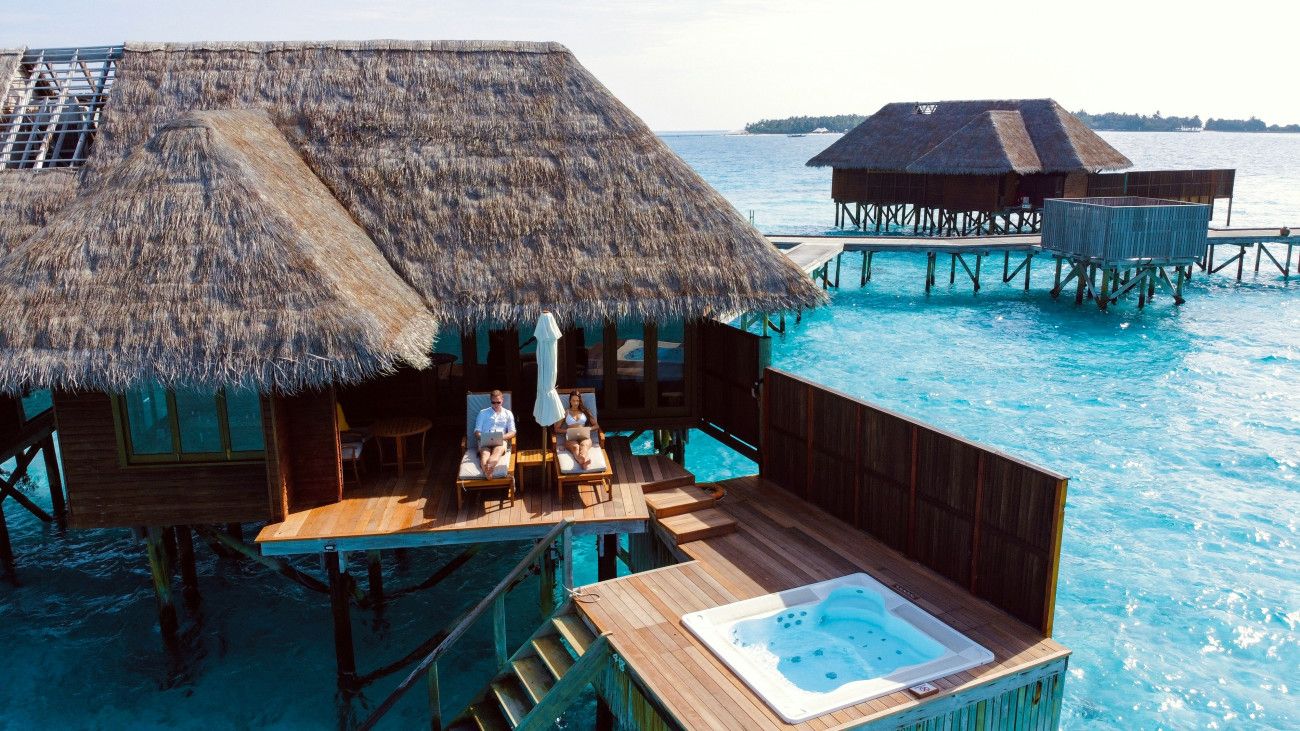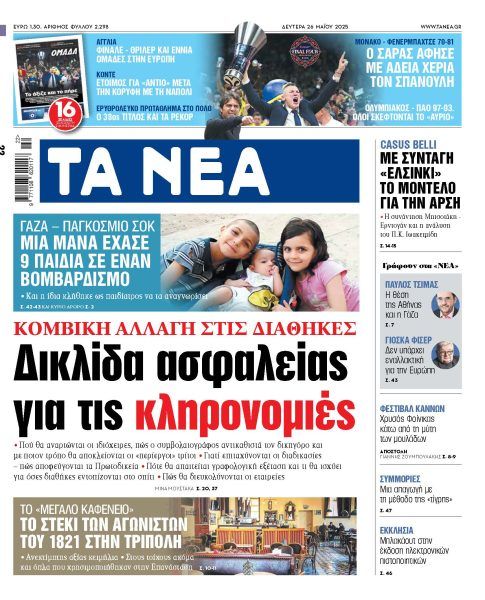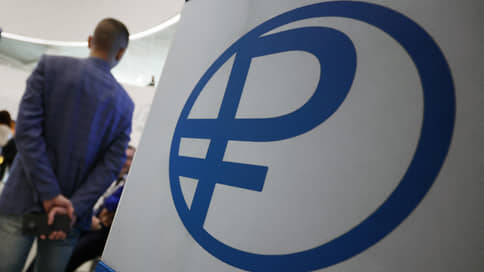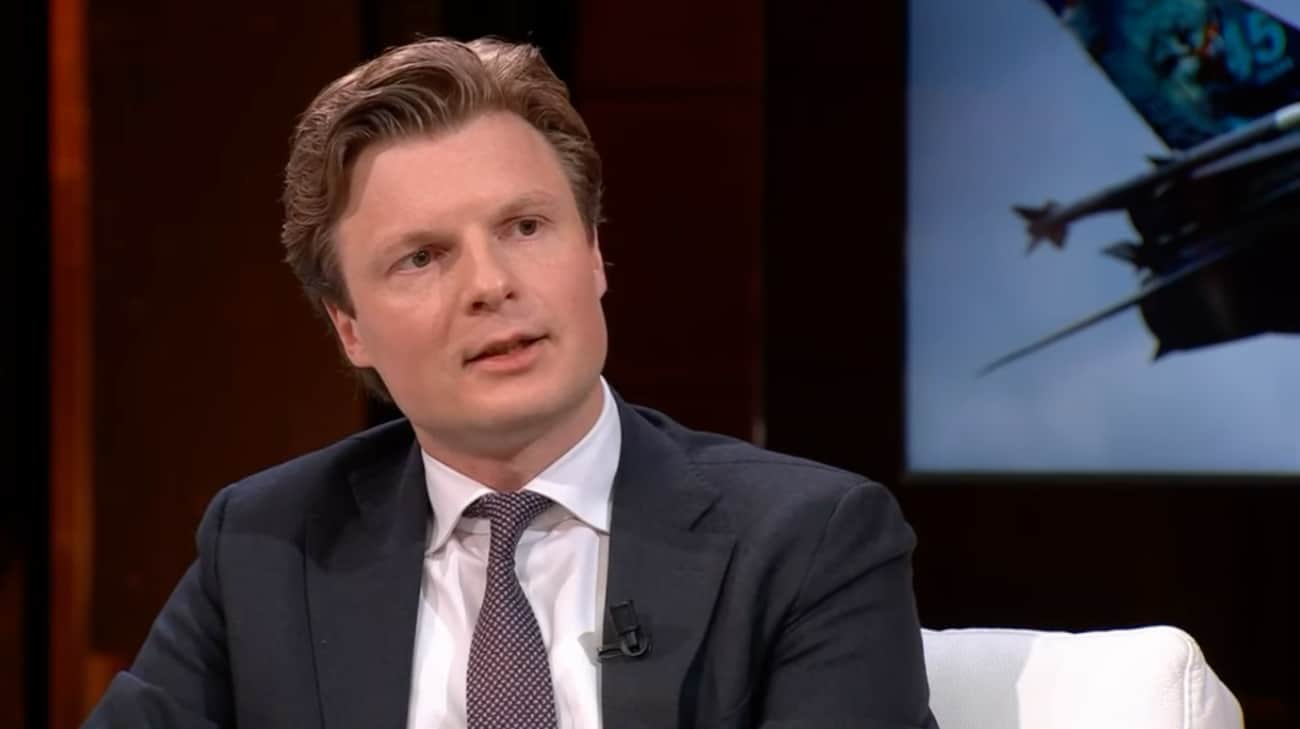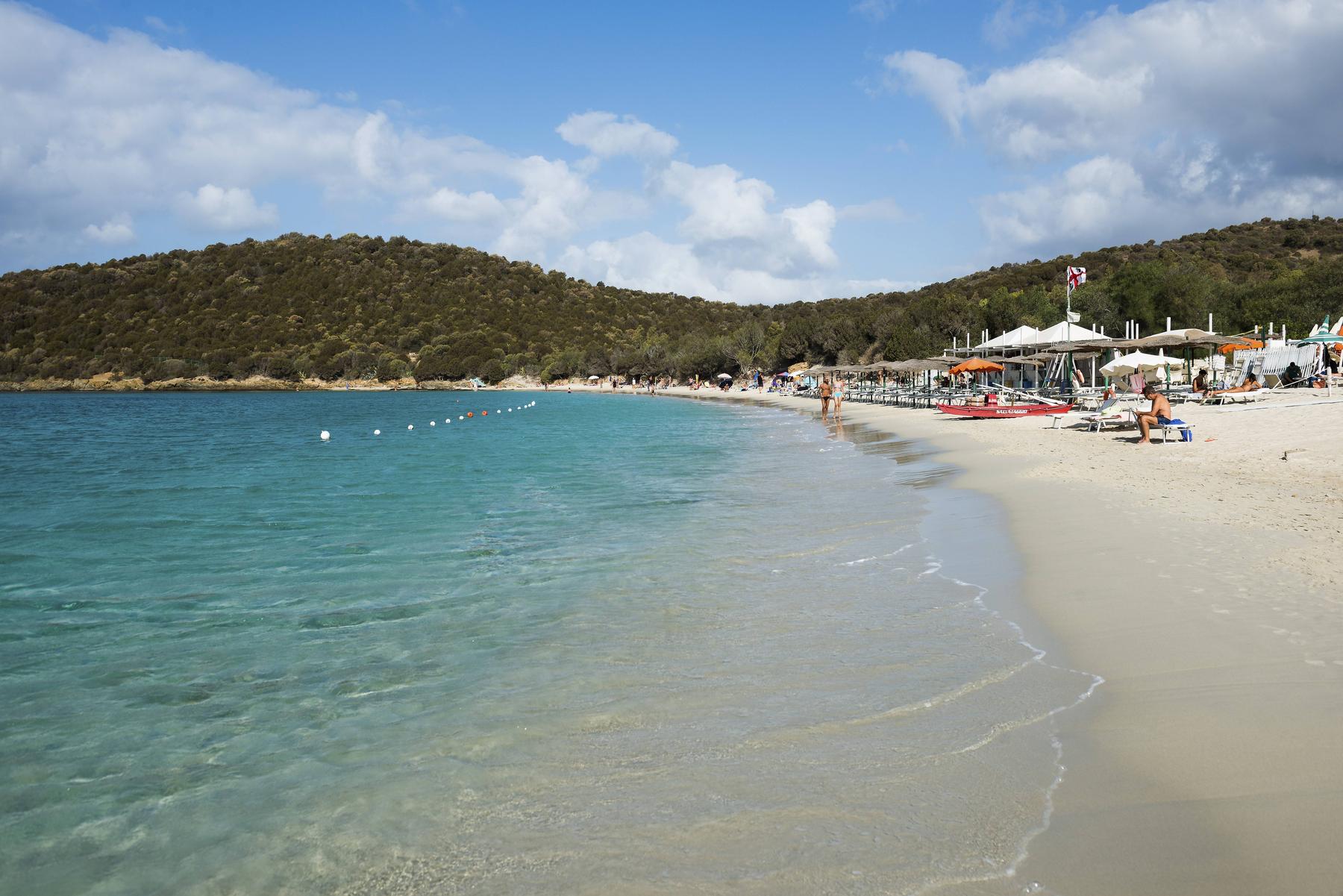Is the end of cheap summer vacation?

The days of the so -called « revenge trips » that took off after the pandemic are over, as they all show. After years of restriction on their homeland, but also after the opening of the pandemic, travelers rushed to explore the world with a « revenge » disposition, triggering a large travel flourishing from 2022 to 2024. But after large price increases in both tickets and stays, So did the end of the cheap summer vacation came?
A Bankrate summer vacation survey in March found that only 53% of Americans said they were planning to do vacation This summer – about the same as last year, but a decrease by 2023, when 63% was planning to vacation. Of those who avoided travel this year, 65% reported the cost to the main factor. And from those who chose to travel, almost one -third said they plan to borrow to do so.
Is the end of cheap summer vacation?
But not everyone feels just as pressured. A Deloitte survey conducted in early April found that even after President Donald Trump’s wide -ranging duties a few days earlier, estimated travel budgets for the summer remained on average 13% over similar estimates.
Through her research in recent years, Deloitte has identified a trend: high -income Americans are a growing share of those planning summer trips.
Almost half of the respondents who said they were planning to travel this summer made over $ 100,000, an income increased by 35% compared to 2023.
To cover the increasing share of high costs, the luxury sector of the travel industry exceeds any other section. As the middle class reduces travel expenses, many high wages still do everything for their summer vacations.
In the last year, more and more mid -income Americans have decided to stay home or change their plans to save money. Las Vegas, which is largely aimed at middle -class travelers, has seen a significant decline. Mark Wayman, owner of a recruitment company with knowledge of the Las Vegas market, told Insider that reservations in the city of sin this year until September is « the worst I’ve ever seen ».
Part of stress is new, with uncertainty about how duties can affect prices and the wider economy. But even before that there was the complex result of chronic price increases. Many travelers have noticed that hotels and flights now include fewer services included in their prices. Southwest Airlines, for example, recently made a front page in March by changing its long -term policy that allowed passengers two free luggage delivered. As a result, people feel that their money cannot take them too far from a travel point of view.
Reycie Gallardo, a 39 -year -old IT director in Los Angeles, said that this kind of changes are really shrinking the range of what people can do when traveling. A few years ago, he and his wife may have taken advantage of a three -day opportunity to fly to a national park and stay for a few days. Now they will drive with their IX somewhere nearby, such as Santa Barbara or San Diego, and they will not even spend the night.
In fact, we increase the divergence between the bottom and the upper part of the short -term lease market.
Makarand Mody, Associate Professor of Hosting Marketing at the University of Boston’s hospitality school, has noticed that others are making the same decision. Nearly a quarter of respondents in April told Deloitte that their high prices have prompted them to drive instead of flying the last year. Deloitte also found that lower income travelers have increased demand for more affordable accommodation in recent years, including caravans, inn and camping.
Home exchange platforms such as HomeExchange and Kindred have also seen a huge increase in popularity. Advertised as more affordable, community -oriented alternatives than hotels or short -term rentals, these platforms help members organize stay in the homes of others. HomeExchange reports that it facilitated 43% more houses in 2024 compared to 2023 and completed 47% more exchanges in January 2025 compared to the same period last year. Kindred, which began in 2021, a factor that could explain part of its growth, reported more than 500% more overnight exchanges in 2024 compared to 2023.
And yet, companies such as airlines, hotels and housing rentals still see « some pretty healthy financial results, » says Mody.
First of all, because prices are steadily rising, companies can increase their revenue even if demand is reduced. But also rich people become richer while maintaining a strong mood for travel. A recent Moody’s analysis estimated that top 10% of households represent half of all consumer costs. As high -income Americans travel and spend more, this can offset the recession of the population sections with lower and medium incomes that see prices raised too high for their own balconies.
This is evident in the thriving market for luxury travel. The latest report by the American Hotel and Home Association reported that the luxury accommodation category presented the fastest growth rate in 2024. It has been more than doubled since 2019 and bookings in the area of $ 1,000 to $ 1,499 increased by almost 15% on a yearly basis in 2024.
It is clear that trips to groups with the highest income do not slow down.
Not only does the demand for luxury accommodation increases, but also prices. « In fact, we are increasing the divergence between the lower and upper level of the short -term lease market, » says Gallagher. AIRDNA data shows that more accurate entries are increased at a price faster than the less accurate entries. From February 2024 to February 2025, the average price of « luxury » accommodation (the most expensive 20%of all accommodation) increased by more than 5%, while the price of « financial » accommodation (the least expensive 20%) decreased by about half a percentage percentage. Analyzes have shown that recent growth in the short -term lease market is largely due to luxurious entries, Gallagher adds.
Roy Madhok, a senior Vice President of Revenue and Distribution at Highgate, a real estate investment company, says that while travel and medium -sized trips are gradually reduced, there is no evidence that the same is true of luxury trips. As far as he can understand, travel for teams with the highest income do not slow down.
The growing divergence between economic and luxurious travel leaves a huge medium -sized people who simply cannot afford how high prices are. While this could mean that many of us are left to combine holidays from an air miles and accommodation combination with friends, there is evidence that this intense gap may not last forever. Some companies are already starting to exploit this market and win back medium -income travelers who face financial difficulties.
Madhok sees the adaptation as a kind of « re -confession » for the travel industry. The recent flourishing of travel was not necessarily normal or viable, he says. Now, demand seems to find a more stable balance. After years of raising price increases in restaurants, hotels and shows in Las Vegas, for example, Wayman says that « prices are already becoming more affordable ». And if demand continues to remain so low, prices will continue to decline in parallel.
Data from the US Statistics Office support the theory of Madhok’s re -confession. According to the Consumer Price Index, the cost of airline tickets this year is about the same level as airline tickets last year, which is in line with prices of 2019. Hotels are slightly cheaper this year than last year, though they are still higher than the 20th of the US. It is going through a period of stagnation, « says Ahla’s recent report, » signaling a turn to normalization of travel standards. «
Although medium and low -income travelers feel that they have lost certain options, it is clear that they still have an appetite for travel, Mody says. « There is a truly huge opportunity » for hotels and other brands to boost their mid -range offers, he adds. Hotels have begun to realize that « this is the point where people want to be in terms of price, » says Mody, and so creating choices for people traveling to this most affordable range will be really important. Last year, companies such as Hyatt, Hilton and Marriott have announced plans for new hotel brands aimed at mid -range travelers.
Will this be enough to reduce inequality in the wealth of travel? Probably not, says Mody. After all, the travel economy reflects the largest economy and the inequality of wealth is still increasing concern. Despite the ongoing economic uncertainties, the most luxurious travel experiences are still becoming more and more inaccessible to the majority of travelers.
Source: OT

